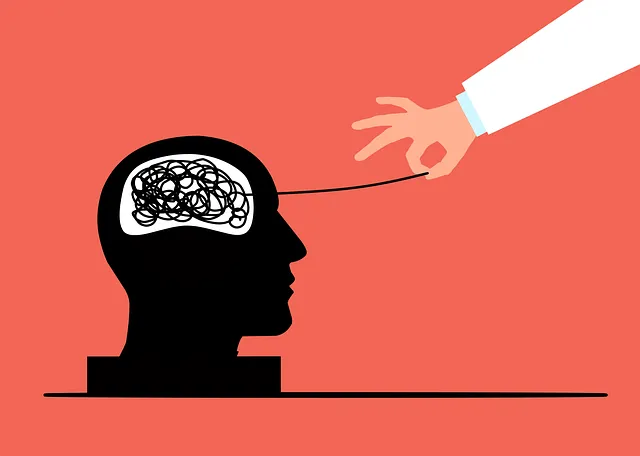Diagnosing mental illness accurately is challenging due to multifaceted symptoms, individual clarity, and comorbidities. Longmont Kaiser Permanente's dedicated behavioral health phone line offers skilled professionals who encourage open communication through stress management and trauma support for precise diagnoses. They utilize advanced assessment tools combining technology and data analytics, along with holistic approaches like Inner Strength Development, improving diagnosis reliability and treatment outcomes. This 24/7 service leverages AI-powered platforms and digital records while providing comprehensive training to cater to diverse patient needs, reflecting society's growing mental health awareness.
Mental illness diagnosis accuracy is a critical aspect of patient care, yet challenges remain. This article explores strategies aimed at enhancing diagnostic reliability, focusing on the unique resources offered by institutions like Longmont Kaiser Permanente Behavioral Health. We discuss innovative approaches, including technology integration and advanced training programs. By examining these methods, we highlight efforts to improve assessment accuracy, ensuring patients receive timely and appropriate treatment. Additionally, this piece delves into the transformative potential of resources like the Longmont Kaiser Permanente behavioral health phone number in facilitating accurate mental illness diagnoses.
- Understanding the Challenges of Mental Illness Diagnosis
- Longmont Kaiser Permanente Behavioral Health Phone Number: A Resource for Accurate Assessment
- Innovative Approaches to Enhance Diagnosis Accuracy
- The Role of Technology and Training in Improving Diagnosis Reliability
Understanding the Challenges of Mental Illness Diagnosis

Diagnosing mental illness accurately can be a complex task due to the multifaceted nature of human behavior and emotions. Many conditions present with similar symptoms, making differentiation challenging for healthcare providers. This complexity is further compounded by the fact that individuals may not always articulate their experiences clearly or may underreport symptoms out of stigma or fear. For instance, those seeking help through Longmont Kaiser Permanente behavioral health phone services might face these challenges, impacting timely and accurate diagnoses.
Additionally, mental health issues often co-occur with other medical conditions or substances, adding layers of complexity to assessment. Effective diagnosis requires not only clinical expertise but also an empathetic approach that encourages open communication. Stress management techniques and trauma support services play a vital role in this process, as they can help individuals feel more comfortable discussing their struggles and provide tools for coping with symptoms.
Longmont Kaiser Permanente Behavioral Health Phone Number: A Resource for Accurate Assessment

For those seeking support for their mental health concerns, Longmont Kaiser Permanente’s dedicated Behavioral Health Phone Number offers a valuable resource. This direct line connects individuals to skilled professionals who specialize in accurate assessment and comprehensive care. By calling this number, patients can access expert guidance tailored to their unique needs, ensuring an initial evaluation that is both thorough and empathetic.
The phone service is designed to facilitate open communication, enabling individuals to discuss their emotional regulation challenges, anxiety relief requirements, or any other symptoms they may be experiencing. Through effective listening and evidence-based assessment techniques, healthcare providers aim to deliver precise diagnoses, setting the foundation for successful treatment plans that focus on improving overall well-being.
Innovative Approaches to Enhance Diagnosis Accuracy

In an effort to improve mental illness diagnosis accuracy, healthcare providers at Longmont Kaiser Permanente behavioral health phone number are adopting innovative approaches. One such method involves integrating advanced assessment tools that leverage technology and data analytics to offer more precise evaluations. These tools can help in identifying subtler symptoms, reducing human error, and providing a comprehensive view of an individual’s mental health state.
Additionally, the focus on Inner Strength Development and Trauma Support Services plays a pivotal role in enhancing diagnosis accuracy. By fostering emotional regulation skills and addressing past traumas, healthcare professionals enable patients to express their conditions more clearly. This not only aids in making more accurate diagnoses but also paves the way for tailored treatment plans that address the unique needs of each patient. Such holistic approaches ensure that emotional well-being is prioritized alongside physical health, ultimately leading to better outcomes.
The Role of Technology and Training in Improving Diagnosis Reliability

The integration of technology into mental healthcare has revolutionized diagnosis reliability. Advanced tools like AI-powered assessment platforms and digital health records allow for more accurate and consistent evaluations, reducing subjective biases often inherent in traditional methods. For instance, Longmont Kaiser Permanente’s behavioral health phone number offers 24/7 access to crisis intervention guidance, leveraging technological advancements to enhance support and accuracy during initial assessments.
Furthermore, comprehensive training programs focused on both clinical skills and cultural sensitivity in mental healthcare practice are instrumental. By equipping professionals with the latest research and best practices, these training sessions ensure a deeper understanding of diverse mental health conditions. Promoting cultural sensitivity fosters more empathetic interactions, accurately catering to the unique needs of each patient. This holistic approach not only improves diagnosis reliability but also enhances the overall quality of care, reflecting the growing importance of mental health awareness in today’s society.
Mental illness diagnosis accuracy is a multifaceted challenge that requires innovative solutions. By understanding the complexities involved, leveraging resources like the Longmont Kaiser Permanente behavioral health phone number for assessment, and implementing technological advancements alongside robust training programs, we can significantly enhance diagnostic reliability. These efforts not only improve patient care but also foster a more compassionate and effective mental healthcare system.


